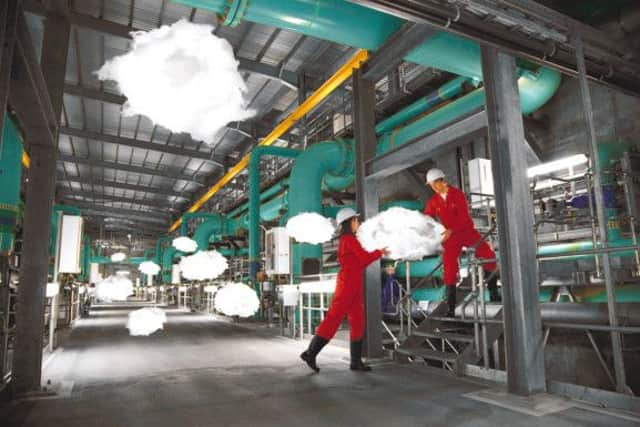‘Scientific fact’ should decide fracking policy


The central theme of this year’s festival is The Ideas Factory, which brings together world-class scientists, policy-makers, inventors and groundbreaking artists in debates which organisers said will be based on “reason and rational thinking”.
Among one of the most high-profile debates is Black Gold, White Lies? – The Truth About North Sea Oil on 14 April, which will examine how much oil is left in the North Sea and its value. Speakers include Professor Alex Kemp, from the University of Aberdeen; Oonagh Werngren, operations director at Oil and Gas UK; Baroness Worthington, shadow climate minister for energy and climate change in the House of Lords; and Professor Patrick Corbett from Heriot-Watt University.
Advertisement
Hide AdAdvertisement
Hide AdLeading scientists appearing at the festival, which runs from 4-19 April, include Edinburgh-based Nobel Prize winner Peter Higgs, physicist Jocelyn Bell Burnell, and Gaia theorist James Lovelock.
Other key strands in the festival include Energy and Environment, which features the Intergovernmental Panel on Climate Change (IPCC) chair Dr Rajendra Pachauri debating climate change in the run-up to the IPCC / UN Climate Change Conference in Paris in December. The festival’s Brainwaves examines the mysteries of the brain, mind and consciousness.
Scottish superstar stunt cyclist and Red Bull athlete Danny MacAskill, who shot to fame after a video of him displaying his skills on the streets and rooftops of Edinburgh went viral, is due to appear in the Tunnel Vision talk on 12 April exploring the nature of focus.
MacAskill will be joined by Professor Ian Robertson, psychologist and founding director of the Trinity College Dublin Institute of Neuroscience, whose work on the brain function of attention has transformed patients’ lives worldwide.
Terry Waite, who was held hostage for almost five years, joins neuroscientist Sir Colin Blakemore on 9 April in Fear and Resilience to discuss his experience in captivity in an event exploring how the brain copes in a crisis.
Amanda Tyndall, the festival’s depute director, said: “This year is the UN International Year of Light and we thought it was appropriate that Edinburgh, the home of the Enlightenment and the international science festival, should be the champion for a new Enlightenment looking at issues in an evidence-based way and be a leader for the value of reason and rational thinking.”
Ms Tyndall said she believed genuine scientific debate suffered when one expert was merely “pitted against” another in the media with airtime disproportionate to the scientific evidence.
She added: “I would say that climate change has been an issue which has been misrepresented with emotional factors dominating the debate, while the hard evidence being pumped out is not making that much difference.
Advertisement
Hide AdAdvertisement
Hide Ad“Again, in the run-up to the Scottish referendum on independence there were lots of different facts and figures flying around making it difficult for the public to form a clear view. Our event is an opportunity to really pick up on this and will look at how much oil is left and whether it is worth getting it out.”
The recipient of the 2015 Edinburgh Medal, given to scientists who have made a significant contribution to humanity, is moral philosopher Mary Midgley, who will be presented with the medal at the City Chambers on 7 April.